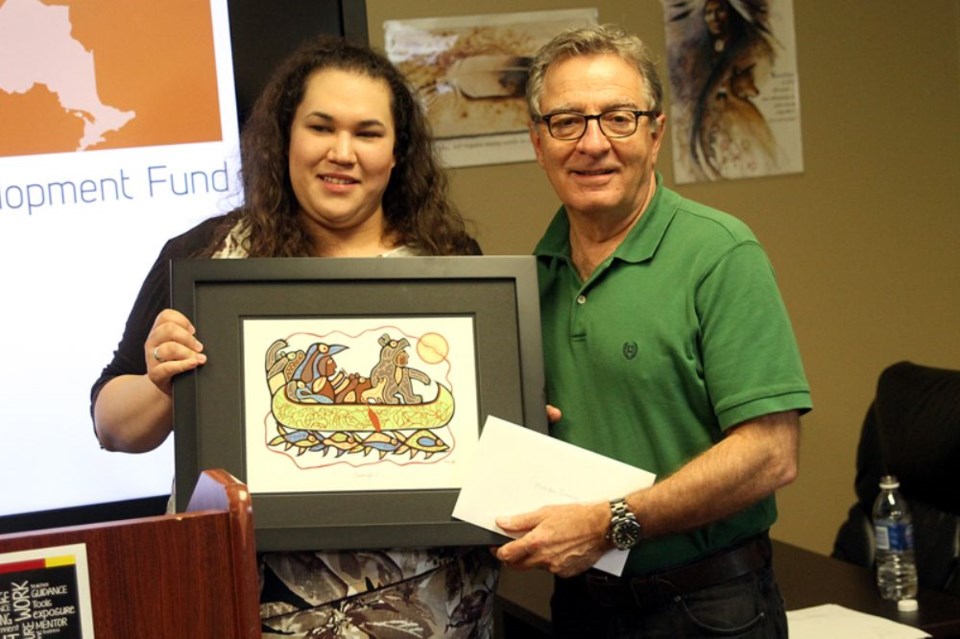THUNDER BAY -- The provincial government will spend $2.7 million dollars over the next three years to help boost the skill level of Aboriginal workers to make them more employable.
The money will also help businesses and communities prosper, said Aboriginal Affairs Minister David Zimmer, who announced the funding Thursday morning in Thunder Bay.
The money, part of a three-year, $25-million commitment through the Aboriginal Economic Development Fund is all about helping Aboriginal workers develop the skills they need, Zimmer said. The end result will not only benefit themselves and their communities, but the province as a whole.
"Why is it important? It's important for First Nations and important for everyone to have the opportunity to raise the level of their skills," Zimmer said. "That's how you build an economy."
Bimose Tribal Council, with the assistance of Confederation College, and the Rainy Lake Tribal Area Business and Financial Services will each receive $500,000 over two years through regional partnership grants to support opportunities in their communities.
Fourteen others will receive economic diversification grants, including $283,415 to the Anisnabek Employment and Training Services to enhance a training program. Bigwi Neyaashi Anishnabek will get $83,034 to develop a business plan and $97,303 to look at the feasibility of a sawmill in the community and $88,897for an economic development plan will go to Fort Severn First Nation.
Mandy Price, a proposal and partnership development officer at Thunder Bay's Anishnabek Employment and Training Services, said the program they would be able to offer would look a lot different without the province's assistance.
Price said they recently graduated 12 of 15 students from a training program designed for workers in the mining and construction industry, when they only expected to graduate six of 10 students.
The money will help, and the timing couldn't be better, Price said.
"One thing that we see coming down the line is there is going to be a gap, not just within Ontario, but in Canada as a whole, is a shortage of labour and construction worker and mining workers by 2020," Price said.
"And there is a lack of Aboriginal tradespeople."
Those future opportunities are too great to overlook, she added, pointing to past assistance from the province and its success rates.
"And with AEDF's support, had they not provided the meals, the accommodations the wage subsidies, the program would have looked entirely different. We would have been looking at specifically an urban Aboriginal strategy, participants who live specifically in Thunder Bay, as opposed to where our nine communities are spread, right down from Wawa to Beardmore to Armstrong," Price said.
She's hopeful the money will continue after the initial three-year program winds down.
"Anybody can say here's all the training certificates, but where's the job experience to go with it. Now that we've put that onto their resumes, it makes them more employable," Price said.
Beardmore's Sage Thompson, who has lived off and on in Thunder Bay for the past 15 years, said he's living proof it can be done. Though he's yet to find work, having just graduated the AETF program, its existence gave him the confidence to do something to try to turn his life around.
"This program was very beneficial, not only to me, but to the other 11 participants," said Thompson, adding he learns better through hands-on-training than in a classroom setting.
"It was a wise investment," he added.
Other recipients include:
• Grassy Narrows First Nation ($99,990)
• Kasabonika First Nation ($199,330)
• Matawa First Nations Managment ($99,663)
• Nibinamik First Nation ($35,120)
• Nishnawbe-Gamik Friendship Centre ($200,000)
• Ojibways of Pic River First Nation ($232,735)
• Pays Plat First Nation ($60,990)
• Pic Mobert First Nation ($100,000)
• Sandy Lake First Nation ($74,254)
